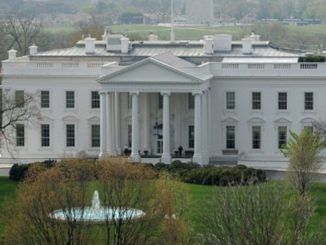
Trump administration officials, that were pressured by the White House to draft a report for reducing the number of refugees allowed into the United States next year, have rejected a Department of Health and Human Services study which stated that refugees brought in $63 billion more in government revenues over the past decade than they cost, The New York Times reports.
The topic has sparked an intense debate in Trump’s administration lines as those who oppose the program, led by Stephen Miller, Trump’s chief policy adviser, argue that welcoming refugees costs too much and raises concerns about terrorism.
Those who support the program inside and outside the administration say that refugees are a major benefit to the United States, that they pay higher taxes than they consume in public benefits, and that they obtain jobs in the service industries that others will not.
The internal study, which was completed in late July but was never publicly released, found that refugees “contributed an estimated $269.1 billion in revenues to all levels of government” between 2005 and 2014 through the payment of federal, state and local taxes. “Overall, this report estimated that the net fiscal impact of refugees was positive over the 10-year period, at $63 billion.”
But White House officials said those conclusions were not correct and politically motivated, and as such discredited by the final report released by the agency, which insists that the per-capita cost of a refugee is higher than that of an American.
“This leak was delivered by someone with an ideological agenda, not someone looking at hard data,” said Raj Shah, a White House spokesman. “The actual report pursuant to the presidential memorandum shows that refugees with few skills coming from war-torn countries take more government benefits from the Department of Health and Human Services than the average population, and are not a net benefit to the U.S. economy.”
John Graham, the acting assistant secretary for planning and evaluation at the health department, said: “We do not comment on allegedly leaked documents” and that no report had been finalized. He noted that Mr. Trump’s memorandum “seeks an analysis related to the cost of refugee programs. Therefore, the only analysis in the scope of H.H.S.’s response to the memo would be on refugee-related expenditures from data within H.H.S. programs.”
The three-page report the agency ultimately submitted, dated Sept. 5, does just that, using government data to compare the costs of refugees to Americans and making no mention of revenues contributed by refugees.
“In an average year over the 10-year period, per-capita refugee costs for major H.H.S. programs totaled $3,300,” it says. “Per-person costs for the U.S. population were lower, at $2,500, reflecting a greater participation of refugees in H.H.S. programs, especially during their first four years” in the United States.




Be the first to comment